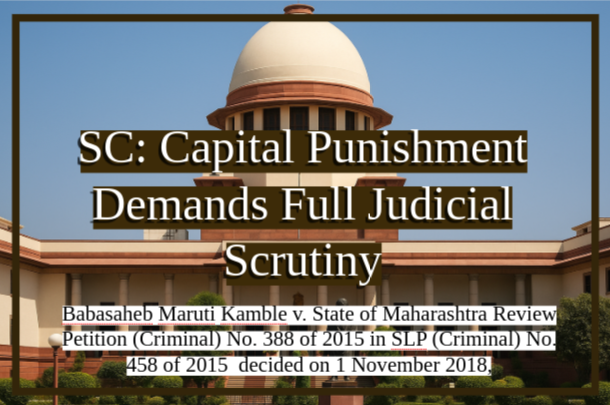SC Quashes Cheating Case Against Educationist Over Alleged Fake Fire NOC
- M.R Mishra

- Sep 14, 2025
- 2 min read
In This Case the Supreme Court has brought clarity to the misuse of criminal prosecution in regulatory disputes, holding that allegations of cheating and forgery cannot be sustained when the very basis of the supposed misrepresentation was immaterial in law.
What's The Matter?
The appellant, an educationist running a college through JVRR Education Society, faced prosecution for allegedly obtaining recognition from the Education Department by submitting a forged No Objection Certificate (NOC) purportedly from the Fire Department.
A chargesheet was filed under Section 420 IPC, accusing him of using a fabricated document to deceive authorities.
However, under the National Building Code, educational institutions housed in buildings below 15 metres in height were exempt from the requirement of fire clearance.
The appellant’s college stood at 14.20 metres.
Indeed, the Andhra Pradesh High Court had earlier directed the Education Department to renew affiliation without insisting on a fire NOC, and contempt proceedings were even issued for non-compliance. Against this backdrop, the Supreme Court found that the alleged misrepresentation could not have induced the Education Department to act in a way it was not otherwise obliged to.
Recognition was not contingent on production of a fire clearance, making the alleged forged document irrelevant to the outcome.
Reiterating principles from Dr. Sharma’s Nursing Home v. Delhi Administration and Hridaya Ranjan Prasad Verma v. State of Bihar, the Court underscored that deception alone does not constitute cheating—dishonest inducement leading to wrongful gain or loss is essential.
Similarly, for forgery under Sections 465, 468 and 471 IPC, the prosecution must show that the accused himself made or knowingly used a false document with intent to defraud.
No such evidence existed; the original document was never recovered, and no nexus was shown between the appellant and its creation.
Accordingly, the Court quashed the proceedings under Section 420 IPC, setting aside the Andhra High Court’s refusal to do so.
The judgment reinforces a vital safeguard: criminal law cannot be invoked as a tool of harassment where regulatory disputes exist, particularly when statutory requirements negate the very premise of alleged fraud.
It draws a fine line between bureaucratic non-compliance and actual criminal intent, a distinction crucial for both the education sector and the integrity of criminal justice.
Case Details :Jupally Lakshmikantha Reddy v. State of Andhra Pradesh (2025 INSC 1096)









Comments